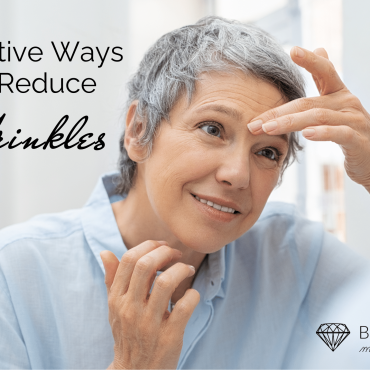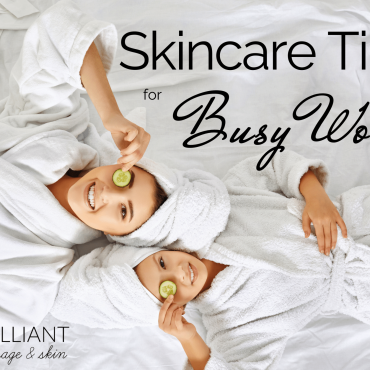Zinc Has Been Helpful For Centuries
Zinc, elemental or in its various forms (salts), has been used as a therapeutic modality for centuries. Topical preparations like zinc oxide, calamine, or zinc pyrithione have been in use as photoprotecting, soothing agents or as active ingredient of antidandruff shampoos. Its use has also expanded manifold over the years for a number of dermatological conditions including infections (warts, leishmaniasis), inflammatory dermatoses (acne vulgaris, rosacea), pigmentary disorders (melasma), and neoplasias (basal cell carcinoma). Although the role of oral zinc is well-established in human zinc deficiency syndromes including acrodermatitis enteropathica, it is only in recent years that importance of zinc as a micronutrient essential for infant growth and development has been recognized. We review here various therapeutic uses of both topical and oral zinc in dermatology clinical practice.

Zinc is anti inflammatory
Zinc, alone or as an adjuvant, has been found useful in many dermatological infections owing to its modulating actions on macrophage and neutrophil functions, natural killer cell/phagocytic activity, and various inflammatory cytokines.
Zinc works with other vitamins and minerals to help treat skin lesions and when taken orally, it can decrease the severity of acne and early signs of maturing skin (lines, wrinkles, spots, etc.). If applied topically via products containing zinc oxide, the mineral has been shown “to protect the skin and aid in wound healing and regeneration.” This is why, she says, zinc oxide is so often found in high-performing sunscreens, as it can reflect the sun and it creates a barrier between the skin and any damaging UV rays.
Zinc (oxide) is one of the two physical sun filters capable of deflecting UV rays, protecting skin from sun damage such from erythema to premature ageing. It is by nature inert, making it a great sun filter for children, or anyone with extremely sensitive or reactive skins. Zinc is also anti-bacterial, astringent and barrier-protective.
Because zinc acts as an enzyme cofactor, it assists in collagen synthesis and DNA repair, which can help keep skin looking younger and healthier.
Internal daily recommendations of zinc are very small, as our bodies don’t require the mineral in large quantities. So again, eating a diet that includes foods high in zinc should be enough to prevent deficiency. It should be noted taking extra zinc is not likely to improve your skin, but not getting enough can definitely cause problems like acne, eczema, and dermatitis.
If a person gets too much zinc, they may develop symptoms such as nausea, vomiting, stomach cramps, and headaches. Too much zinc can also lead to low copper levels and a weakened immune response. Therefore, it is extremely important to be careful when taking supplements, as too much can cause serious problems. A person should not exceed 40 mg of zinc daily.
Certain antibiotic medications and a few other prescriptions can inhibit zinc absorption—as does alcohol.
Zinc Helps Acne?
While not as effective as other blemish minimising ingredients such as salicylic acid and benzoyl peroxide, zinc has anti-inflammatory and antibacterial properties that can help to alleviate active acne, and studies look particularly promising in terms of zinc’s potential to reduce sebum protection, making angry breakouts all the less likely.
Thats why our Brilliant Zinc and Sulfur mask with salicylic acid is a better choice than zinc alone. And Alpha Beta or Benzoyl Peroxide Wash is better.
Exactly how zinc works when applied to skin isn’t fully understood. What’s thought to be happening is that forms of zinc, such as zinc sulfate or zinc acetate, inhibit certain enzymes and “rogue” fatty acids in skin that fuel the growth of the bacteria that trigger acne. Zinc also seems to have a balancing effect on skin’s microbiome, helping to keep the mix of good and bad microbes in harmony.
It’s also been theorized that zinc reduces signs of acne because of its potent antioxidant and calming ability on skin. Acne is an inflammatory disorder, so anything you can apply to minimize inflammation is a good thing. At the very least, topical zinc might minimize acne-related redness.
Last, both topically and internally, zinc seems to also play a role in controlling oil production, possibly because it lowers the amount of the male hormones (androgens) that play a pivotal role in acne and oily skin.
Best is to get zinc through your food:
Food rich in Zinc:
Oysters, beef, lamb, chicken, pumpkin seeds, spinach, chickpeas, coconut, spirulina, cashews, sunflower seeds, beans, tempeh, and dark chocolate/cacao are a handful of the best sources of zinc if you’re looking to naturally improve your skin’s glow.
But your can also add supplements if you think you might not be getting it enough through food
Mineral Sunscreens that have Zinc are especially good:
Read More Here about the use of Zinc in Medicine:
https://www.ncbi.nlm.nih.gov/pmc/articles/PMC4120804/


